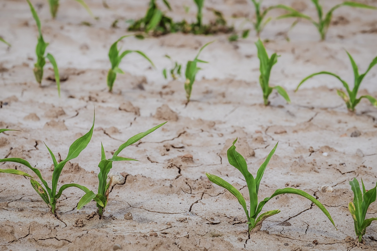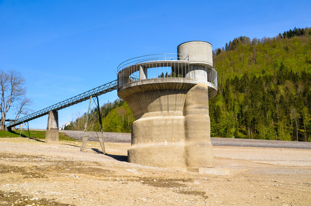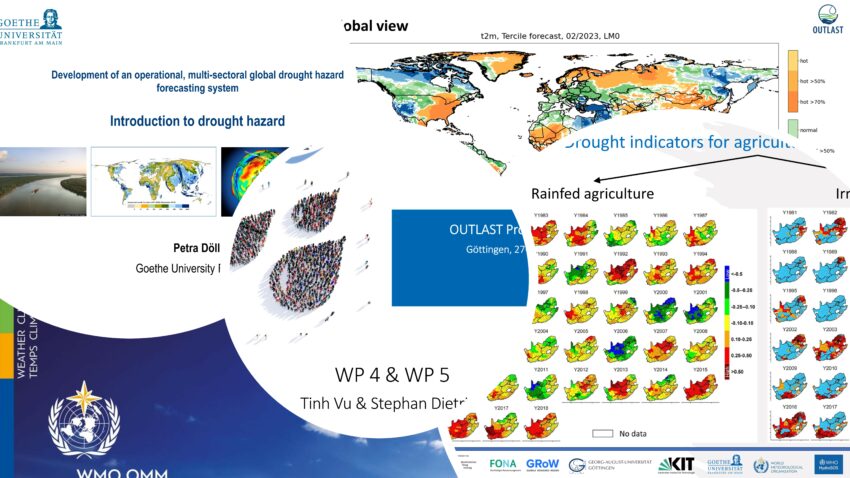Our first workshop happened on the 27th and 28th of February 2023 in a Hybrid format (In-person in Göttingen and virtually in Zoom). This workshop was spread over two days, with a huge amount to learn and take away. Our project partners from different universities and institutes attended this hybrid workshop. Over two days we learned the key concepts, skills, and capacities needed to design a forecasting system and how to integrate them with the HydroSOS portal. A mixture of theory and pragmatic approaches in terms of how to design a forecasting system.
During the first day (27th of February 2023), we discussed the forecasting system development:
- Methods and approaches to be applied in the operational forecasting system
- From seasonal meteorological forecasts to user-friendly, operational, and multi-sectoral drought hazard forecast
- IT infrastructure and required capacities
- How to evaluate the operational forecasting system
Our focus during the second day (28th of February 2023) was on the drought hazard indicators co-design:
- Possible indicators to be applied in the drought hazard forecasting system
- Approaches to present information
- Stakeholders’ involvement
- Workflow development
- Possible approaches to integrate OUTLAST interface with HydroSOS portal
- Designing future participatory workshops in different places with the cooperation of our pilot users (Lake Victoria Basin and UNESCO Regional Center on Urban Water Management)
Contact Us:
- Prof. Dr. Stefan Siebert: stefan.siebert@uni-goettingen.de
- Neda Abbasi: neda.abbasi@agr.uni-goettingen.de



